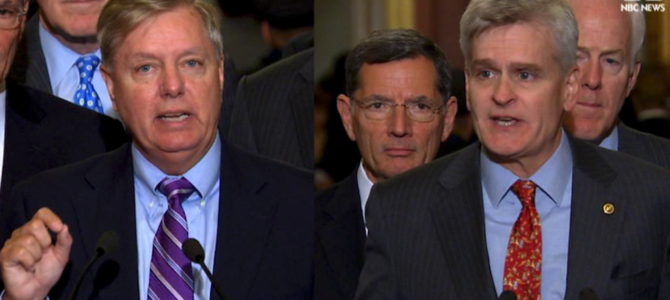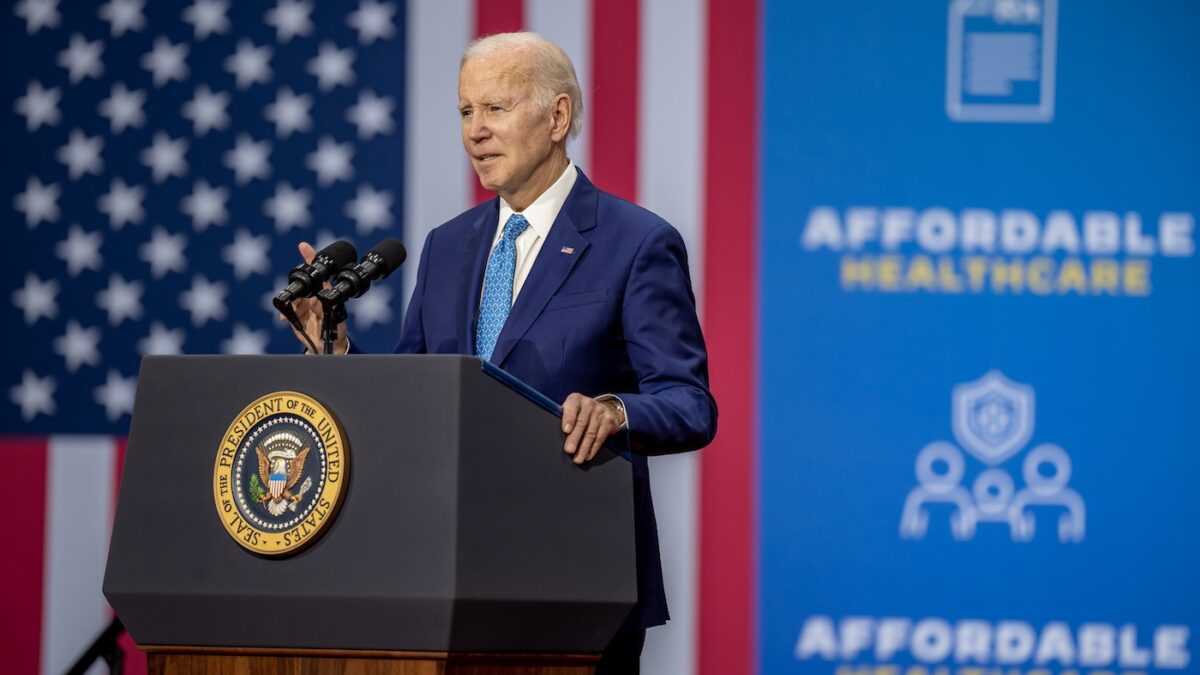
Contrary to much of the media coverage this week, the push by congressional Republicans to do something about Obamacare isn’t a desperate last-ditch effort or a “health care zombie.” On the contrary, it might be the best health-care reform idea GOP leaders have come up with yet.
The bill, authored by senators Lindsey Graham of South Carolina and Bill Cassidy of Louisiana, would address a woeful imbalance in our health-care system by returning much of the authority for regulating health insurance back to the states, where it belongs. In its current form, the legislation keeps most of Obamacare’s funding in place (except for the individual mandate tax penalties and medical-device taxes) but states would be able to apply for grants that allow them to more or less pursue whatever health-care policies they want with those funds and waive some key parts of Obamacare like the individual mandate and coverage for preexisting conditions.
In short, Graham-Cassidy represents a kind of health-care federalism, in which states like New York and California would end up with very different systems than states like Texas and Florida. Of course, that’s already true to some extent, and it was true even before Obamacare. But where Obamacare sought to make states more uniform according to rules written by bureaucrats in Washington, Graham-Cassidy would allow states to go their own way.
That might not exactly amount to an Obamacare repeal, as Republicans have promised to pass for seven years now, but given that straight repeal is apparently impossible for this Congress, Graham-Cassidy might be the next best thing. Why? Because allowing states to experiment with different health-care policies is the only thing that will drive down the cost of health insurance so more Americans can afford it.
Progressives don’t like the idea of health-care federalism in part because they think health care should be treated like a public utility. That is, bringing costs down for consumers is not a high priority, so the potential benefits of health-care federalism—lower premiums and out-of-pocket costs for residents of states that adopt smart policies that drive costs down—don’t much appeal to them. What’s more, having wildly different health-care systems between states makes their goal of creating a European-style single-payer system much more difficult.
Hence, progressives in the media are calling the Graham-Cassidy plan highly disruptive, saying it “shifts the burden” to the states but provides less funding and punishes (mostly blue) states that expanded Medicaid in favor of (mostly red) states that didn’t.
Special Interests Dominate State Health Care Policy
The problem with these criticisms is that they ignore the endemic problems our health-care system had even before the disruptions of Obamacare—problems that have gotten worse over the past seven years. One of the reasons health insurance costs so much is that Obamacare mandates a bunch of “essential health benefits” that insurance companies have to cover.
But states had been doing this to insurance companies for years, mostly at the behest of providers who lobbied for coverage mandates. If every insurance plan in a given state had to cover, say, hearing aids, then hearing aid companies could expect to do brisk business. Obamacare essentially nationalized that practice, which is one reason insurance premiums have skyrocketed in recent years.
The same dynamic applies to actual medical care (as opposed to health insurance). Regulations written by and for special interests at the state level stifle competition, which would otherwise make health care more affordable. Most state-based medical professional associations act like cartels, using regulations to restrict access to care, erect barriers to competition, and thwart innovation at every turn. Any given state medical association is at least as anti-free market for health care as the most strident Obamacare-defending Democrats in Washington. And it’s not just medical doctors. Protectionism runs in the veins of ophthalmologists, anesthesiologists, dentists, and just about every other medical profession that’s regulated by a state licensing board.
Beyond the professional medical associations, many states engage in protectionism of a simpler variety. Thirty-five states and the District of Columbia have something called certificate-of-need (CON) laws, which require health-care providers to get permission from the state before expanding a practice, purchasing a new medical device or technology, or doing any one of hundreds of other things. The idea is that providers must prove that there’s a need for some new service or treatment, or even just a need for more medical care in a certain area. Whenever a CON application is submitted, existing providers have a chance to challenge its claims. It would be like a state requiring ridesharing companies like Uber and Lyft to “prove” there’s a need for more transportation options, then inviting taxi cab companies to challenge Uber and Lyft’s claims.
Setting aside the obvious problem that such laws kill competition and innovation, they also drive up costs, especially for the poor. A recent state by state study of CON laws by George Mason University’s Mercatus Center show that states without CON laws provide better care without skyrocketing costs, as proponents of CON laws claim. The study also found that the number of items subject to CON laws has increased over time, encompassing more than 500 different items.
Graham-Cassidy Offers a Chance To Do Something New
Thus giving states more power to regulate health care is by no means a guarantee that they will adopt market-based policies that encourage competition and blunt the influence of special interests. But some of them will, even while some try to set up a kind of state-based single-payer system. Let them do it, and let Americans see the stark difference in cost and quality.
Opponents of Graham-Cassidy will roll out endless critiques of the bill in the coming days. Most of these will be nothing more than lamentations that some states might be allowed to roll back aspects of Obamacare. But few will grapple honestly with how badly we need innovation at the state level, and what health-care federalism might reveal about our current system.
The truth is, if we want to lower the costs of actual medical care (as opposed to trying to subsidize the costs of expensive health insurance, as Obamacare does), we can’t just keep having the same endless debate about cutting Medicaid or reforming Medicare. We also have to reform how health care is regulated at the state level. If Graham-Cassidy will allow states to do that, it’s worth a shot.









